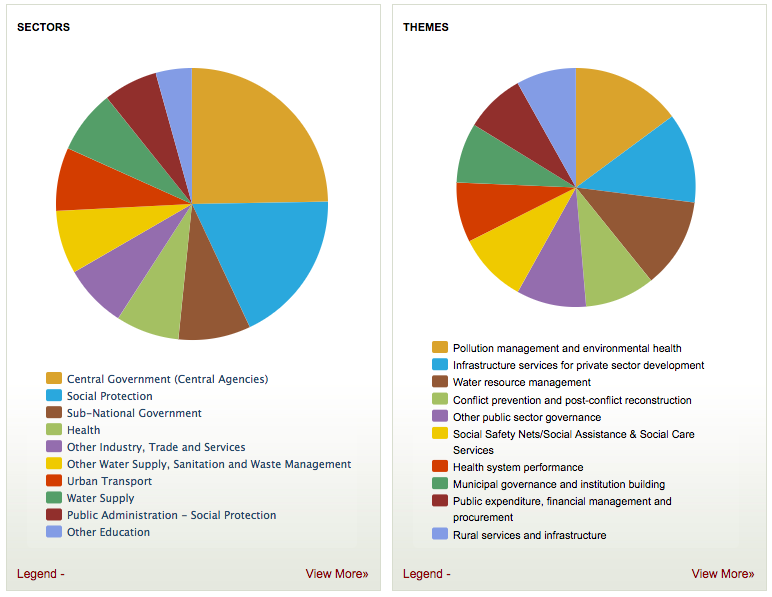The World Bank started conducting development projects in Lebanon in 1950’s and has since established 73 projects out of which 10 were dropped and 43 completed. In the 2017 fiscal year $405.4 million was allocated to operations in Lebanon.

“[The] WBG, the UN and the Islamic Development Bank have developed a new Concessional Financing Facility that seeks to: (i) raise a greater volume of financing for countries impacted by the influx of refugees and countries affected by conflict and economic downturns; (ii) create a unique platform among international financial institutions and the UN to strengthen coordination on development assistance to the MENA region; and (iii) provide financing at more advantageous terms for MENA countries, be it at concessional terms for countries impacted by the Syria refugee crisis, or at multilateral development bank terms for countries in conflict who currently borrow at less beneficial rates from commercial lenders” (Country Partnership Strategy 2016, 2).
“The CPF benefited from a series of stakeholder consultations, including those held in connection with the SCD and the WBG Gender Strategy. Consultations were held with civil society, academia, think tanks, and private sector representatives in Beirut and Tripoli. Additional sessions were conducted with government representatives, Parliamentarians, the United Nations, and donors, as well as a sample of the Lebanese diaspora and youth. These consultations were held between February and May 2015 and helped to inform the strategy and program interventions. A second round of consultations were held in January 2016, with government representatives, parliamentarians and youth to discuss the new direction of the CPF, including its alignment with the WBG MENA Strategy and the priorities identified by the Government for concessional financing” (Country Partnership Strategy 2016, 2).
The World Bank’s strategy for setting up the partnership relies on the lessons it learnt in the previous reporting period. These briefly include (Country Partnership Strategy 2016, 16):
- need to invest only when the political economy in the sector is favorable for reform and to ensure national ownership of reforms across all political parties.
- work more closely and upstream with the Parliament to foster buy-in early on in an effort to reduce delays in obtaining legislative approvals.
- increasing selectivity and strategic focus are critical, and the proliferation of small and thinly spread interventions should be avoided as they challenge client capacity and are difficult to monitor.
- High quality, demand driven, and actionable analytic and advisory activities are key to strengthen the overall engagement.
They represent the operational methodology of the IFI in dealing with state matters. On the one hand, it works towards strengthening the legitimacy and accountability of the national government. On the other hand, it could be impeding actual reform if the notion of a weak state and strong local governmental structure was acknowledged and normalized.
Citations
COUNTRY PARTNERSHIP FRAMEWORK FOR THE LEBANESE REPUBLIC (Rep. No. 94768-LB). (2016, June 8). Retrieved February 19, 2018, from The World Bank Group website: https://openknowledge.worldbank.org/handle/10986/24678